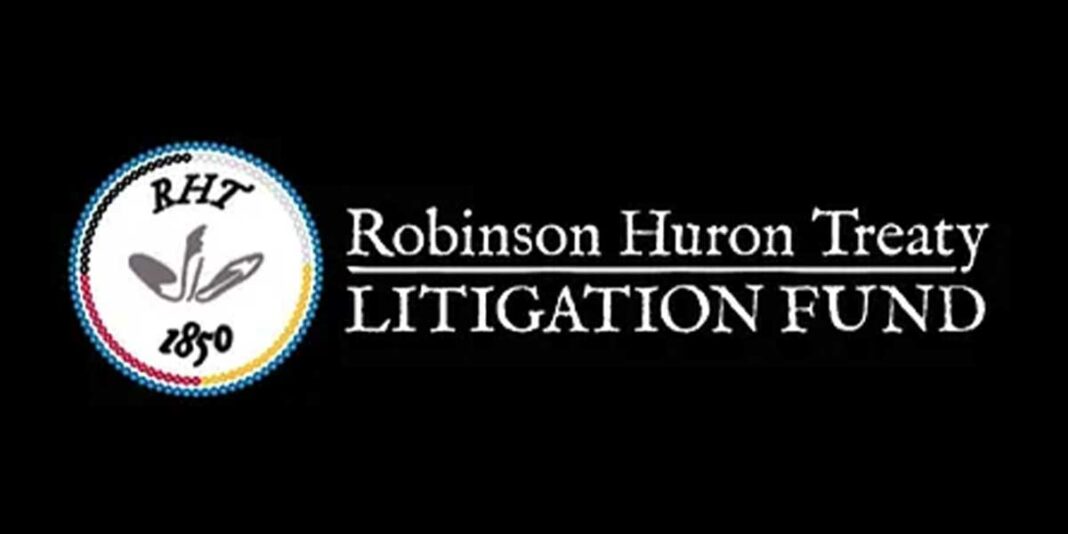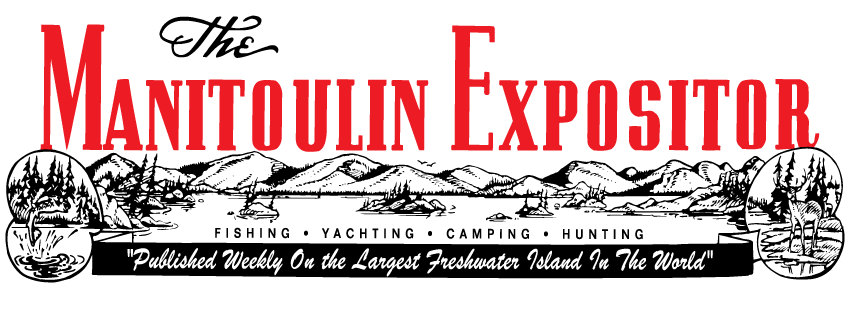MANITOULIN—Local trustees with the Robinson Huron Treaty Litigation Fund (RHTLF) are encouraging residents of the 21 Robinson-Huron First Nations to alert their leadership if they receive letters being sent to beneficiaries about RHT settlement payments being processed, asking for personal and banking information. The local trustees are also reminding residents the final agreement has not been signed off by the government yet, so funds have not started to flow.
RHTLF trustee Duke Peltier of Wiikwemkoong Unceded Territory told The Expositor, “To my knowledge, no one has fallen victim of the (fraud/scam). This letter is something that some people have received and did not feel it was right and let us know.”
“The final agreement hasn’t been signed by the government,” said Mr. Peltier. “Both the federal and provincial governments have to complete the requirements to sign the final agreement, but this hasn’t taken place yet.”
Kevin Mossip, a trustee for RHLTF, on behalf of the Zhiibaahaasing First Nation said, “the scam letter involves people trying to get into your bank account and obtain personal information. My advice is to listen to your chief and council—if the money has flowed yet, but it hasn’t. Nothing has flowed yet.”
Neither Mr. Peltier nor Mr. Mossip have seen a copy of the letter.
“I haven’t seen the letter, this came through our communications department,” said Mr. Peltier.
“The Robinson Huron Treaty Litigation Fund (RHTLF) wishes to alert members of fraudulent letters being sent to beneficiaries about RHT settlement payments being processed. Those letters are branded with government and/or RHTLF logos and ask for individuals to provide personal and banking information to confirm their eligibility for distribution. Once details are provided, it promises to either direct deposit or mail a cheque,” a release explains.
“Please note that the RHTLF and the governments of Canada and Ontario have not started to make any settlement payments and will not ask for your financial information via email or text,” the RHLTF release continues. “If you think that a recent communication that you received might be a scam, please contact your First Nation office, email us to info@robinsonhurontreaty1850.com or send us a direct message on social media to verify its credibility.”
The RHTLF release continues, “Here are some tips for protecting yourself against scams: do not open emails from people you don’t know. Try reaching out to the sender directly via their official email or phone number to make sure that it is legitimate. Do not click on any links in an email unless you are sure it is safe.”
“Look at the branding carefully. Scammers tend to use logos, email or postal addresses that are very similar to legitimate senders. Check the communication you received carefully to see if there is a slight variation in spelling or logo to lure you,” the RHLTF recommends.
“Be careful of clicking on suspicious links. Malicious links can also come from friends who have been compromised,” the RHLTF release continues. “Secure your personal information. Before providing any personal information, such as your date of birth, social security number, account numbers and passwords—be sure the website is secure.”
“Resist the pressure to act immediately. Scammers often use urgency as a tactic to get your information quickly. Please verify the credibility of an organization before sharing your personal information.”
Mr. Peltier said, “if anyone gets a letter or information that they think is not legitimate, advise their First Nation leadership, or confirm with when and how monetary disbursements will happen. There will be notices sent to each of them from their First Nation on how the disbursement of the funds will take place. There will be announcements and information sharing, and First Nations will indicate when and how the disbursements will be sent out.”
Mr. Peltier said it is unfortunate that scammers have jumped on the opportunity to try and scam someone in this way, but he added, “this type of thing has been happening forever.”





